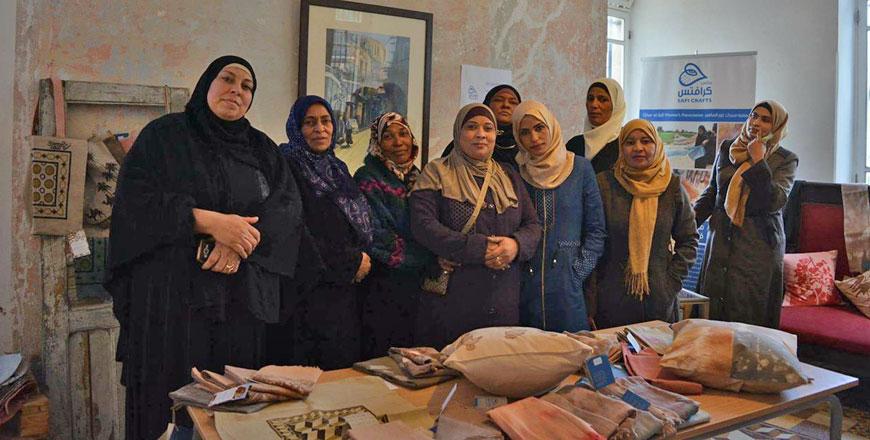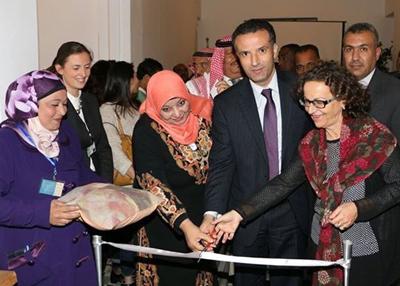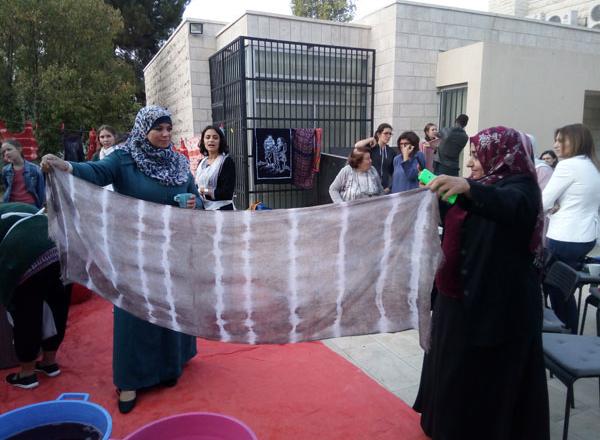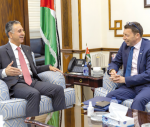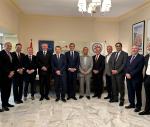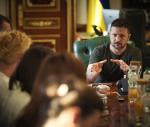You are here
Rejected by men’s cooperative, Ghor Al Safi woman creates one of region’s most successful societies
By JT - Nov 24,2016 - Last updated at Nov 24,2016
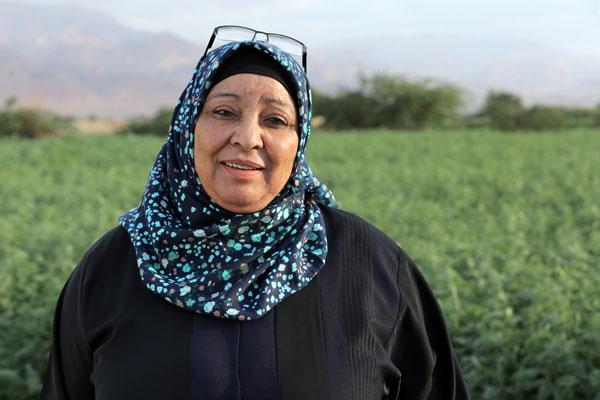
Nofeh has established Ghor El Safi Women’s Association for Social Development despite various hurdles (Photo courtesy of UN Communications Group)
AMMAN (UN Communications Group) — Self-confident, motivated and hardworking, Nofeh is the president of the Ghor El Safi Women’s Association for Social Development as well as member of the Ghor Al Safi Municipality and an active member of four other associations in the country.
For many people, establishing a women’s cooperative in Ghor Al Safi, a little village south of the Dead Sea, represents an arduous task.
But not for Nofeh.
She has dared to challenge the status quo and has succeeded in creating one of the most successful women’s associations in the region.
Nofeh recalled her challenges in settling the women’s association.
“In 1996, I wanted to join a men’s cooperative, but my application was rejected. Thus, I decided to register my own cooperative together with 21 other women,” she said.
“In 1999, I began Safi Crafts, a project specifically focused on the production of handicrafts.”
At the time, the cooperative was involved in a broad range of activities such as dyeing, embroidery and handicrafts, but the scale of their production was small and their situation precarious.
“For about one year, we worked in my kitchen. Afterwards, we were given a space in a small building, but the place was cramped and there were many other associations sharing the same venue,” she recounted.
Since 2013, UNESCO has been supporting the women’s association to improve its production and promotion of handicrafts through the project “Empowering Women and increasing resilience in the Jordan Valley”.
This programme is in line with the government’s efforts to support local communities in Jordan negatively impacted by the Syria crisis.
The project entails developing the capacities of the women of the association in various key areas, like production, design, marketing, finance and management.
“We now have a better financial system and a clear distribution of roles. Most importantly, the women have increased their income and have acquired new skills,” Nofeh said.
Nada Al Nasaleh, a member of the association, agreed with Nofeh.
“Now I am financially self-sustained, and this gave me more freedom and self-confidence. We have learned accounting, management and communication skills,” she said.
These skills are not just beneficial for the production itself, they have been helpful also as a means of social development, as these are practical life skills easily applicable in the everyday lives of the women.
Following the initial two years and a half that the project has been running, Nofeh summarised the achievements: “more women have joined the association, more synergies have been established among us and the income of the women has finally increased”.
When asked about the relevance of this project for the community, she explained: “For us, it is not just about doing artistic activities together; it is more about doing something useful for the community, something which could really have an impact.”
Funded by the Drosos Foundation, this project is part of the Jordan Response Plan and adopts an innovative approach that sees culture as a source of resilience for host communities and contributes to mitigating the impact of the Syrian crisis in one of the Kingdom’s poverty pockets in the Jordan Valley.
This story is contributed by the UN Communications Group in Jordan as part of the ‘16 days of activism against gender-based violence’ campaign
Related Articles
AMMAN — A project that utilises the colourful soil and natural plants of Jordan to produce hand-dyed textiles in the Jordan Valley is testam
AMMAN — UNESCO on Wednesday launched an exhibition of handcrafted and naturally dyed fabrics created by rural women from the Jordan Valley a
Amman — The Ghor Al Safi Women’s Association, a group of women from the Jordan Valley producing dyed textiles in collaboration with Tiraz Ce


